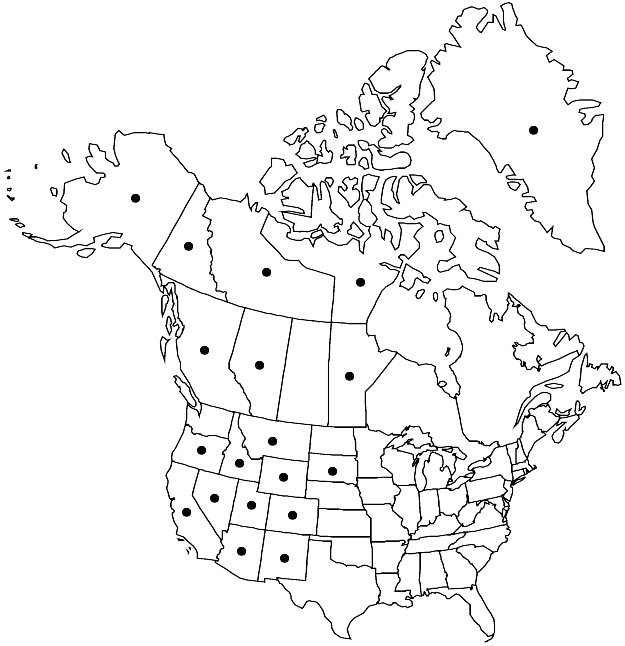Orthotrichum pellucidum
Öfvers. Kongl. Vetensk.-Akad. Förh. 23: 549. 1867.
Plants to 2.5 cm, appearing glaucous. Stem-leaves stiff, closely erect-appressed, incurved when dry, oblong-lanceolate or lanceolate, 2–2.7 mm; margins recurved proximally, reflexed distally, entire; apex blunt or obtuse; basal laminal cells short-rectangular to quadrate, grading to subquadrate at margin, walls thin, not nodose; distal cells 6–11 µm, 1-stratose, papillae 1–3 per cell, conic or 2-fid, large. Specialized asexual reproduction absent. Sexual condition gonioautoicous. Seta 1–1.5 mm. Capsule 1/2 emergent to short-exserted, oblong-ovate to ovate when mature, oblong to short-oblong when old and dry, 1.2–1.9 mm, strongly 8-ribbed entire length, rarely 16-ribbed with 8 short intermediate ribs, constricted below mouth when dry; stomata immersed; peristome single; prostome rudimentary; exostome teeth usually 16 when mature, irregularly split, often absent when capsule old, erect or spreading, papillose-striate to coarsely reticulate-papillose; endostome segments absent. Calyptra oblong, smooth, hairy, hairs papillose. Spores 10–15 µm.
Habitat: Calcareous or siliceous boulders, cliff faces in xeric areas, direct sunlight
Elevation: moderate to high elevations (500- 3000 m)
Distribution

Greenland, Alta., B.C., Man., N.W.T., Nunavut, Yukon, Alaska, Ariz., Calif., Colo., Idaho, Mont., Nev., N.Mex., Oreg., S.Dak., Utah, Wyo., n Europe
Discussion
Orthotrichum pellucidum is distinguished by its blunt, lanceolate-oblong leaves that always appear glaucous because of the large 2-fid papillae of the distal laminal cells. When the plants are fertile, which is usually the case, the short-exserted, oblong-ovate, 8-ribbed capsules identify O. pellucidum. The capsule has stomata in the proximal to mid capsule, more or less covered by projecting subsidiary cells.
Selected References
None.
Lower Taxa
"entire" is not a number.